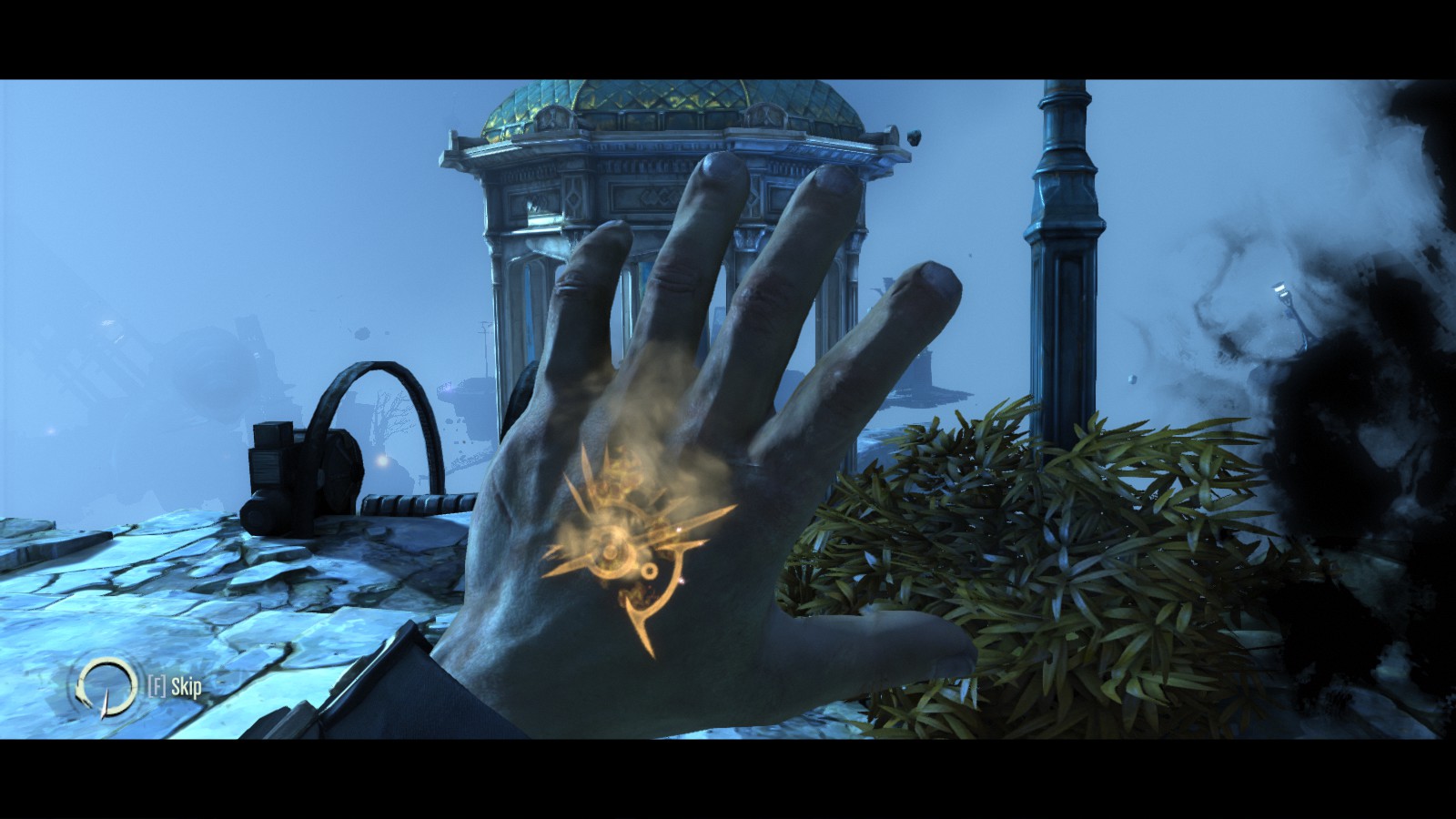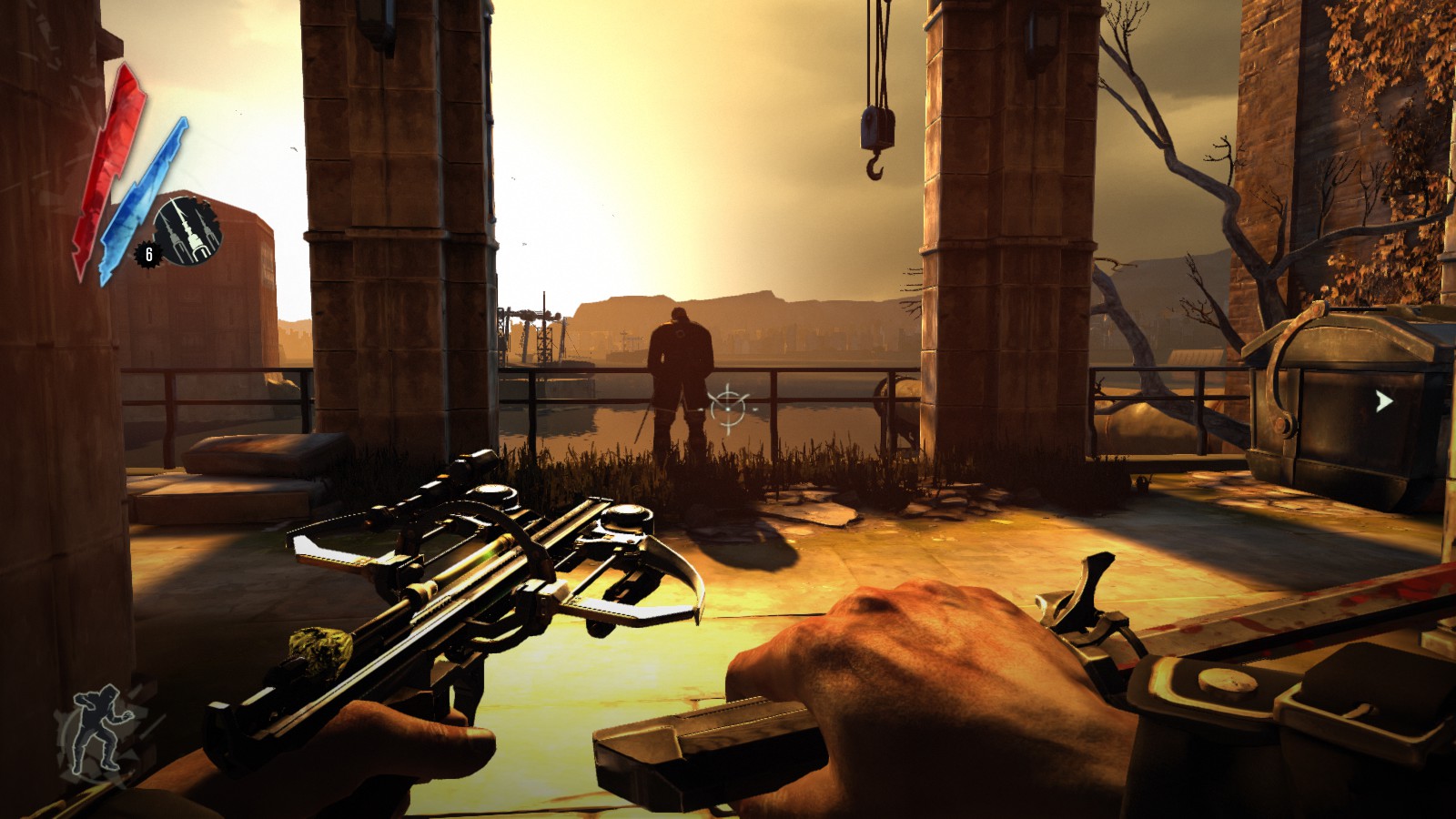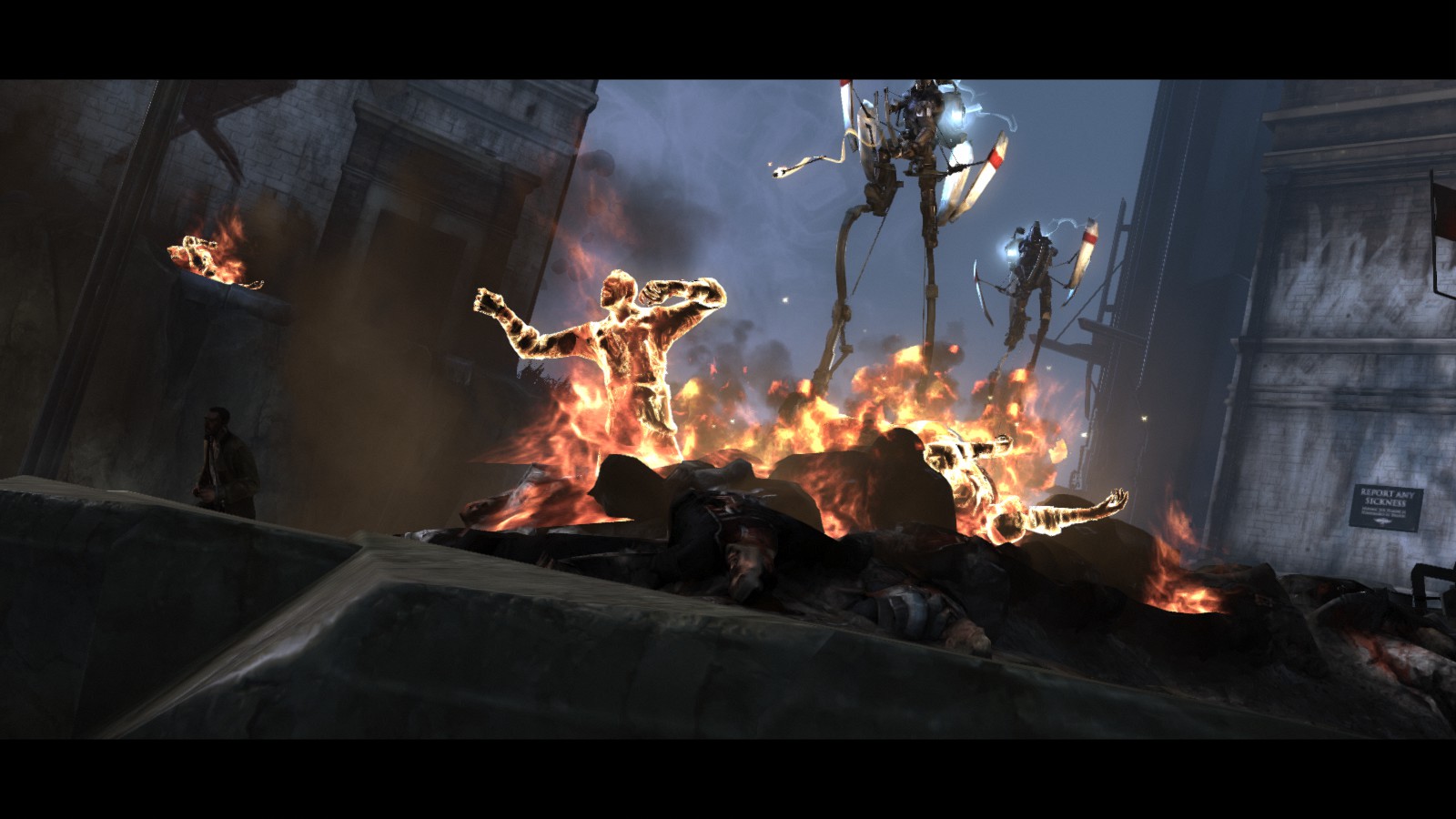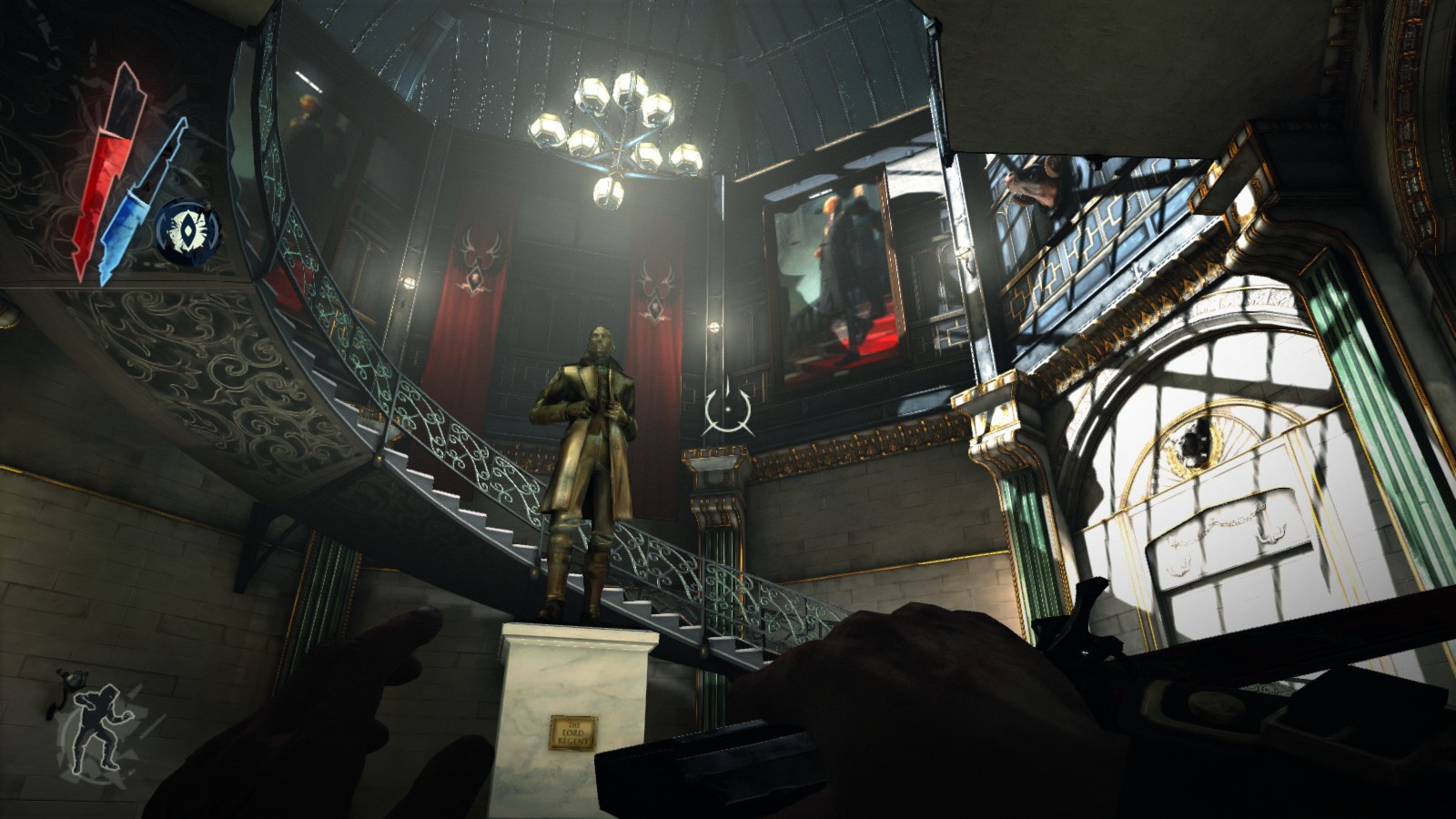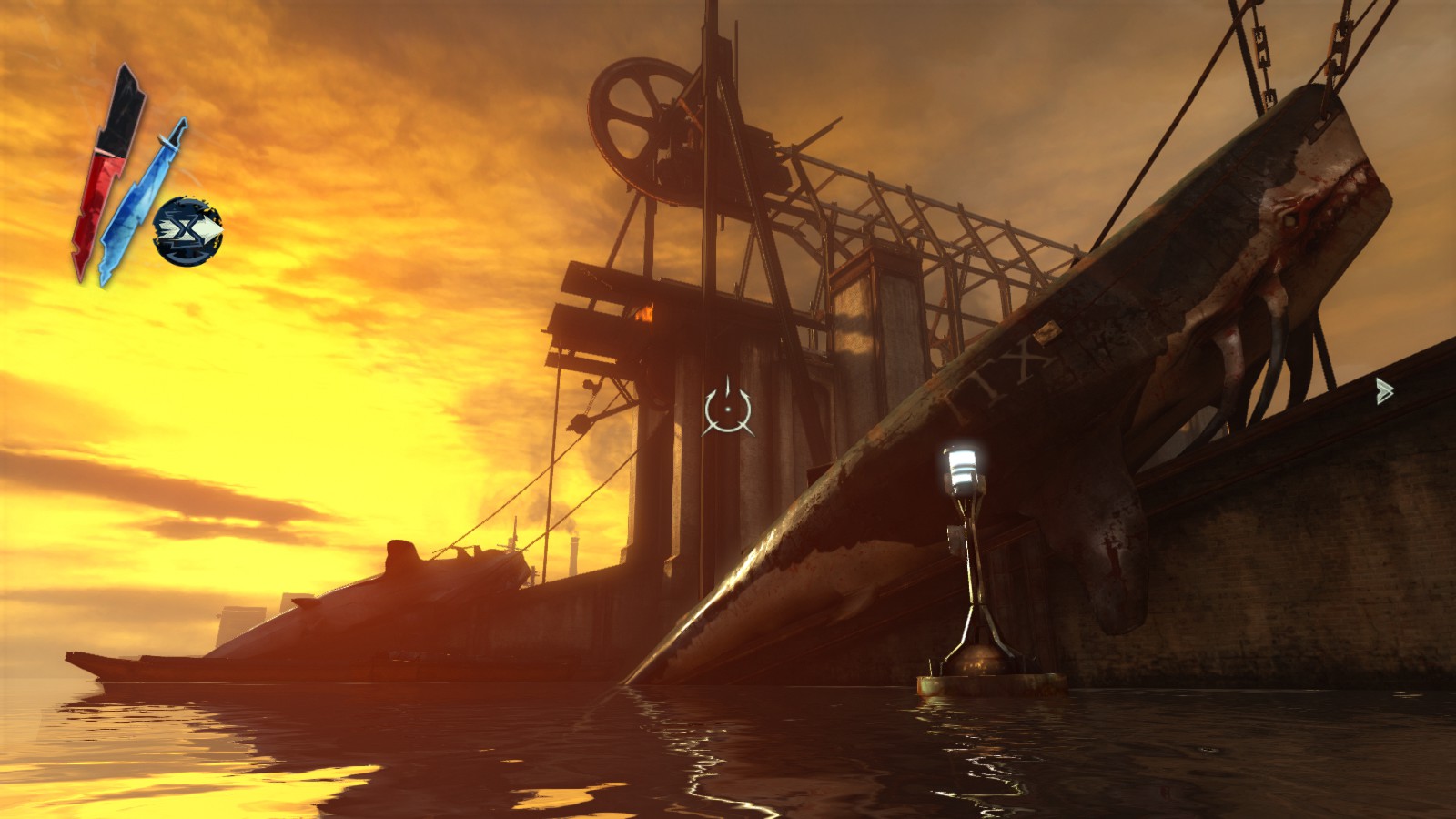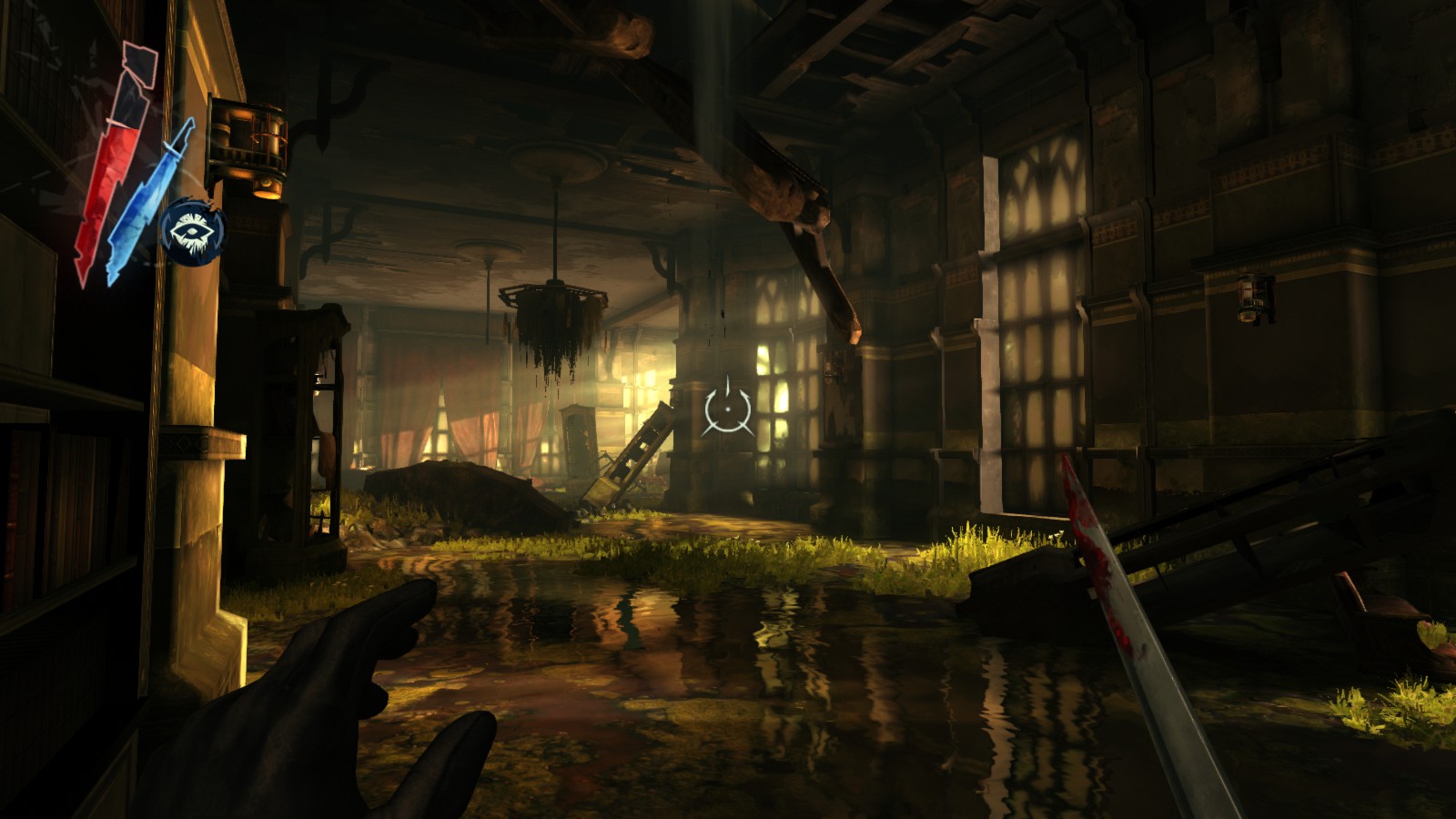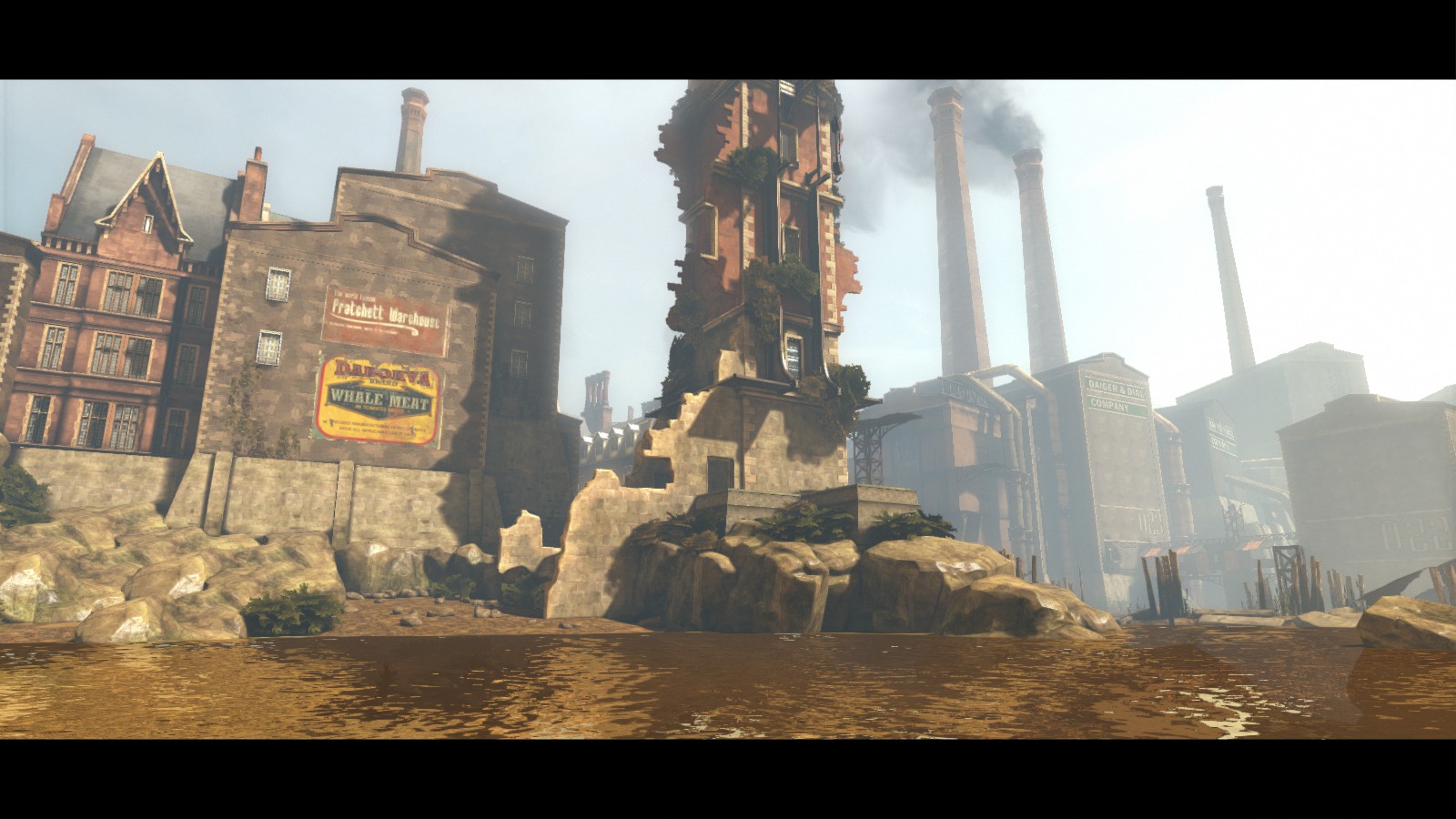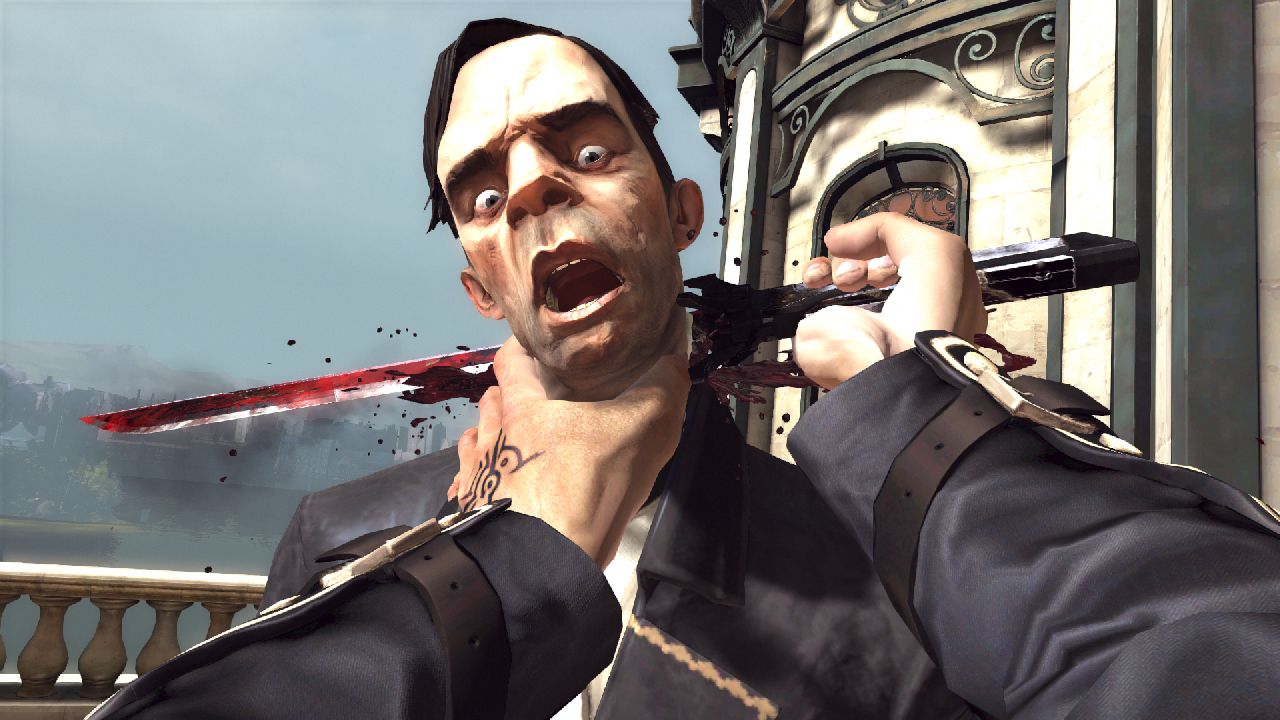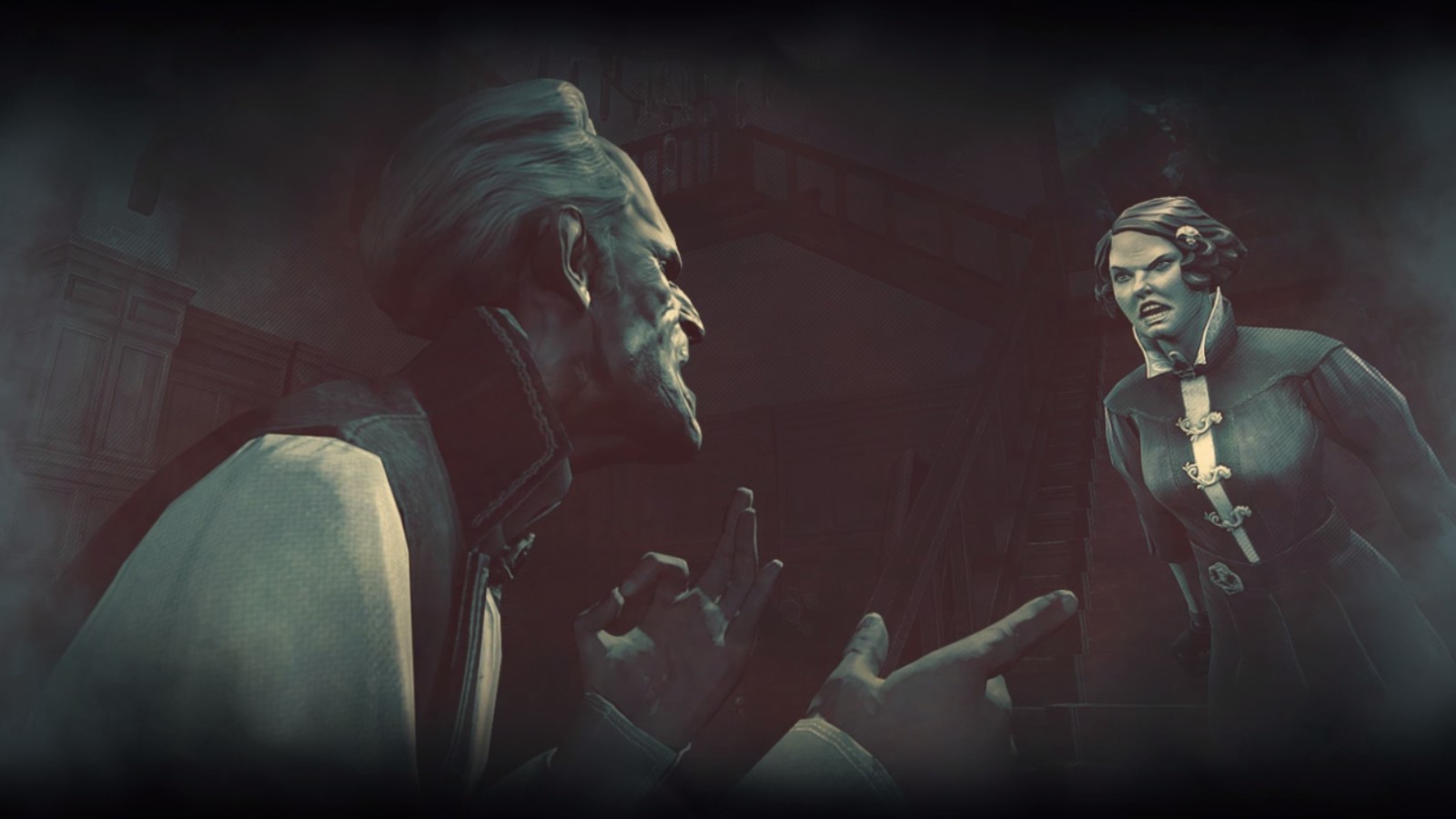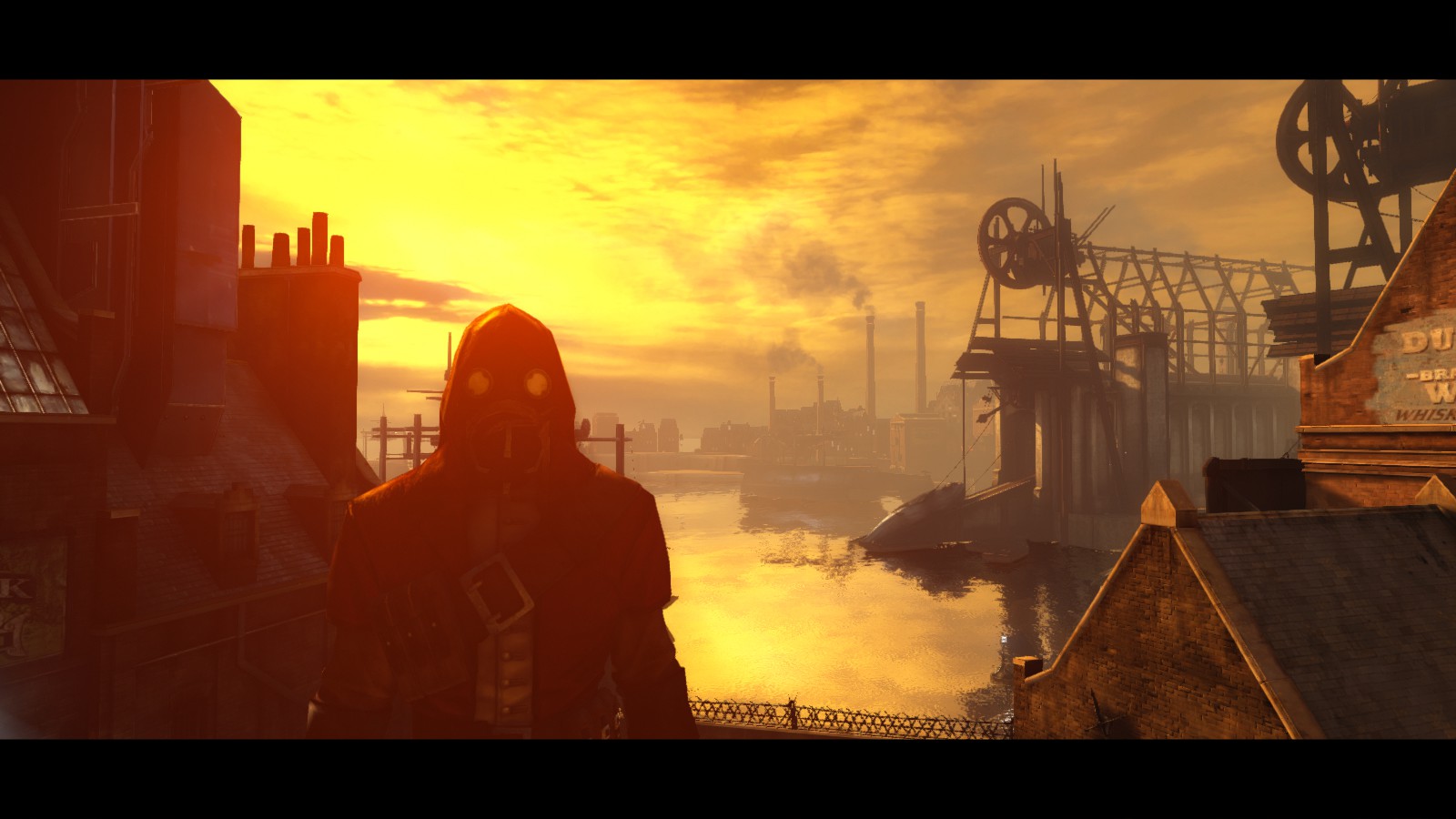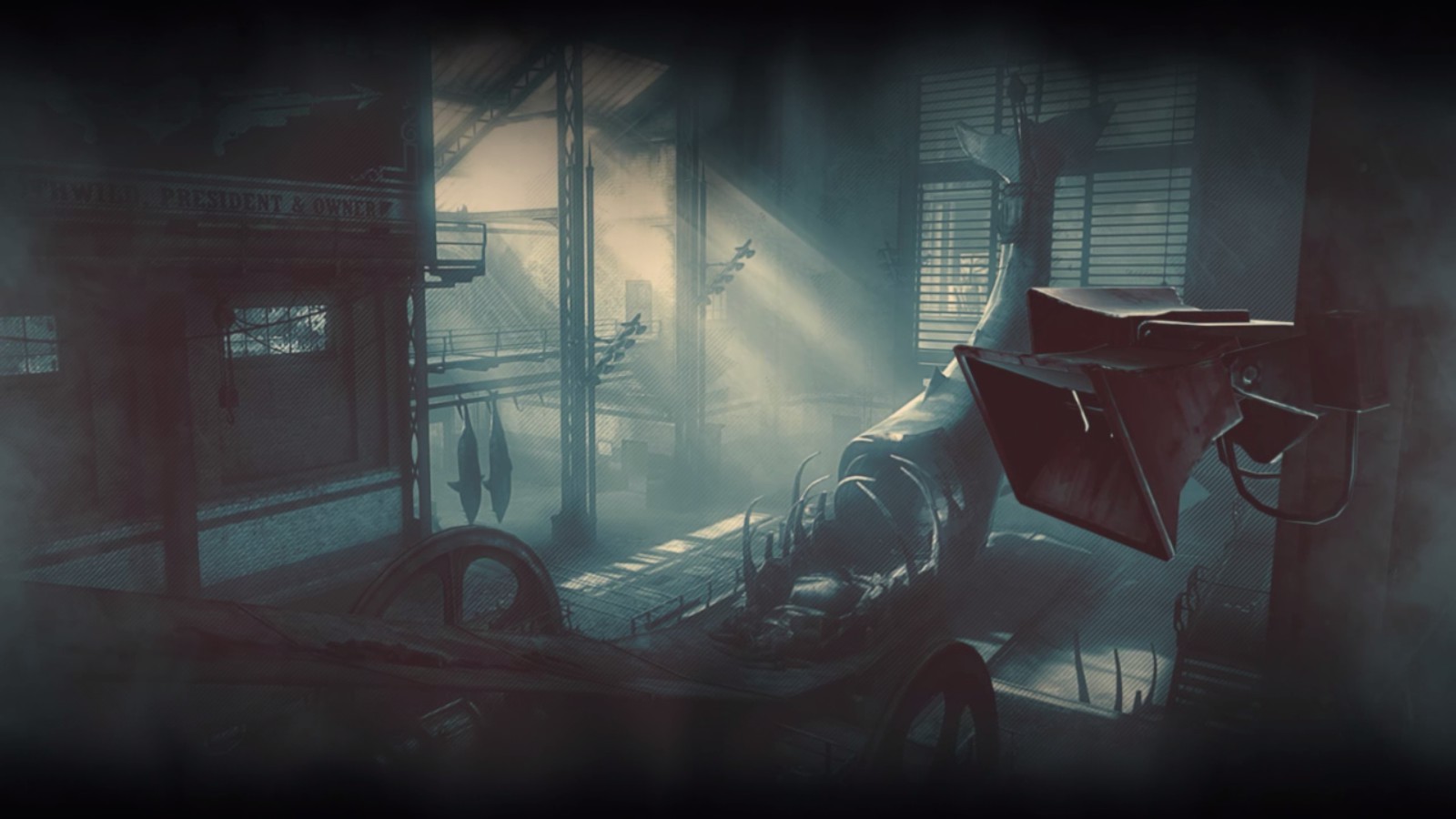There are times in life when you just instantly know you if you like something or not: whether it's Thai food, bungee jumping or knitting - sometimes your particular personality matrix just instantly hits the 'like' button. This can happen while playing games and every so often you will play a game that just feels right: one such game for me was the acclaimed 2012 game Dishonored from Arkane Studios (with Bethesda publishing). When doing a retro review I always dig into the history of the game and while doing this I have uncovered some fascinating facts about Dishonored that I didn't know, despite playing through it entirely four times.
For a start, the list of actors/actresses who lend their vocal talents to this game is very impressive and now I look through the list I'm having plenty of "ahh, I thought that guy sounded familiar" moments. This includes Brad Dourif for example (Wormtongue from Lord of the Rings) who plays the genius weaponsmith; Piero Joplin - this guy has a voice that just does malevolent and creepy like nobody else; and Michael Madsen (famous for Reservoir Dogs) steps in as the voice of Daud, another master assassin you may cross swords with at some point. One voice I hadn't spotted before looking though was that of up and coming starlet Chloe Grace Moretz - probably most famous for her role as Hit Girl in the ultra violent Kick Ass. There are plenty of other well known names such as Lena Headey (who plays Cersei in Game of Thrones) but what is just as important as talent is how well cast they are. Pretty much every character from Granny Rags to the Pendleton Brothers all stand on their own feet and add so much to a game already brimming with personality.
A particular set of skills
So, for those who have never played Dishonored, what is it all about? Well, you play Corvo Attano, a skilled body guard turned vengeful assassin. In the game's opening sequence you are framed for the murder of the Empress Jessamine Kaldwin who you swore to protect and in the same instance, her daughter Princess Emily (Chloe Grace Moretz) is swept away by the mysterious attackers. On escaping from Coldridge prison you set out to bring those responsible for these acts to a sticky end with the help of a group of unlikely rebels who wish to help you accomplish this.
The game is played in first person and you have a mixture of conventional weapons and magical abilities at your disposal. The weapon you will likely use the most is your folding short sword which is backed up by a pistol, hand crossbow (both with various ammunition) and an assortment of other bombs and death-dealing gadgets. At an early junction in the game you meet the Outsider, a powerful being not of this dimension and one that imbues magical powers into your body making you even more deadly than before. These abilities are one of the stand-out features of the game because the excellent level design is intrinsically linked to how they work: the whole experience feels solid and expertly crafted. When the game was being tested exploits were discovered and instead of chopping them out, the design team incorporated these skill and power combinations into the game and then built the levels around these new abilities. For example, you can leap from a height impossible to survive but as you are feet from becoming roadkill you could possess a rat or person, thus you never actually hit the street.
Each ability has two tiers and for the most part both versions upgrade sufficiently to justify their existence. Some powers will complement stealth - like the shadow kill (which turns enemies killed by stealth into ash, negating the need to hide the body) and some for full attack such as the adrenaline power giving you powerful one shot kills when charged. One trinket you acquire is the 'living' heart bestowed upon you by the Outsider: part flesh, part clockwork and dark magic, it now speaks to you offering an insight into your world. This can be information about people, places or even just contextual background about Dunwall. The idea is genius because despite there being many interesting books to read around the game world the heart imparts another layer of lore to gamers who just don't like to read in-game text. Listening to the heart talk it often seems melancholy and lost - like it doesn't actually know it is dead: disturbing stuff indeed and why it fits Dunwall like a glove.
The heart has a nifty second function and that is to help you find and acquire runes and bone charms crafted from the bones of long dead whales. As you get nearer to the rune the heart will beat faster until finally it looks like it's been doing laps with Usain Bolt. Runes are simply the game's currency for upgrading your powers and abilities, however the bones charms do add some very useful perks. One, called Falling Star, gives you mana when killing with a drop attack and another lets you possess white rats longer than normal. You may only equip a certain amount but you can easily customise them to what kind of play style you are adopting.
Fly like a butterfly, sting like a bee
So here we come to the main reason why I rate Dishonored so much and that is the way you move through the environment and interact with the towering city around you. As you go into a crouch and walk towards a table you naturally sink lower to occupy the space below it, when you jump and hold space Corvo will quickly climb up any ledge - no clumsy climbing animation where you lose control for a few seconds: you just ascend with cat-like grace. These moves are effortless and make you feel fast, agile and deadly - this has rarely been done for a game played entirely in first person and Dishonored does it best.
As your powers grow, so too does your ability to move with superhuman speed, you pick up Blink (teleport) pretty much from the off and for such a simple ability the amount it adds to the game is extraordinary. Imagine picking up a target you wish to dispose of, blinking through a 6th story window, slowing time enough to gauge your landing area and then, as you and your ill-fated passenger are feet away from the ground, you possess one of the guards gawking upwards at you and casually walk away. A nice little touch is to blink is that when you can climb a ledge the teleport icon changes to show this.
Once your agility and blink are fully upgraded, Corvo is like lighning in a bottle - couple this with upgrades to his footwear (for silent running) and it's officially play time. The game's incredible systems, responsive movement and the freedom to be creative with your powers are why Dishonored is unmatched.
Who's your Daddy?!
I do find it increasingly sad that many younger gamers will never play Deus Ex or Halflife. For me these games (and others like it) were the pioneers of first person action/stealth games that also managed to grapple with the additional elements of RPG progression. The original Deus Ex was actually just an average shooter but it was the way it laid out your options, threw over the keys and said: "here you have a go" that escalated it to another level. There comes a point in Deus Ex when your brother Paul gets killed, with no prompting I decided to try and save him: turns out you could. Not only that but Paul would then be present for the rest of the game: for me this kind of branching narrative made Deus Ex my all time favourite game.
One of the developers who worked on Deus Ex ended up as one of the main creative directors on Dishonored (Harvey Smith), so when Bethesda approached Arkane Studies to make a new IP the ground work was already there. Raphael Colantonio (who worked on the excellent Dark Messiah) was also instrumental in bringing the world of Dishonored into being. In addition, the man who designed City 17 in Half Life 2, a chap known as Viktor Antonov, was asked to be the visual design director. These influences can be seen running through the very core of the game and everywhere you look reminds you of the legendary heritage that went into making Dishonored look the way it does. The game engine is a heavily modified version of the Unreal Engine 3, which straightaway makes it rock solid and in all my time playing I have never seen a frame rate drop or stutter - I'm not joking when I say this game would probably run really well on a good mobile phone. While it's true the graphics are starting to look a little dated they do get away with so much by the way textures have been painted and used in the wider game world. So many parts of the city and even characters' faces look like a combination of an impressionist painting and on the edge of cell shading. Sure the geometry of some objects is very basic but this wonderful graphic style, coupled with some startlingly well designed levels and exemplary lighting, make Dishonored punch way above what it is capable of delivering technically.
Of course, the setting between Dunwall and City 17 couldn't be more different and in fact the former was designed with a 19th century London and Edinburgh in mind. Everywhere the remnants of the aristocracy reminds you that this industrial city is one of few haves and many have-nots: much of the city's former grandeur has been ruined by the plague which permeates every crack and crevice. I really like how the designers have fused this 19th century aesthetic with some very modern technology. Force fields called 'Walls of Light' will block your way and tessellation towers will vaporise anyone not authorised to pass. There is also an undercurrent of magic running through the game, not only with your own abilities but also the lore and NPCs you meet on your travels. In a funny kind of way I see the heart of a living thing as a totem of what the game is made of: steam punk and magical fused into one beating core.
System shock
I love games with intelligent systems that can be observed, manipulated and then abused. I remember reading a preview about Dishonored and the games journalist said they had been going for a non-lethal playthrough. On entering the level summary screen the number of kills read 1: an unconscious body had in fact been eaten alive by rats.
Rats are everywhere in Dunwall but they are not just there for visual authenticity, if you get more than five rats in a pack they will come nibbling: in fact early on in the game you are given a very graphic example of what a large pack of rats can do to any human who gets in their way. The number of rats on the streets is also linked to the kind of player you are, the more you kill the more rats appear and in turn, more infected humans (weepers) roam the city: it all makes sense and is a clever way of reminding you that your actions come with consequences.
The aforementioned amalgamation of old and new works really well, the city actually relies on refined whale oil to run its machines and contraptions. What is really cool is that many times you can interact with these devices, removing or adding fuel canisters can aid you in passing sentry towers and other security systems. The canisters themselves are also explosive and so here we have Dishonored's version of red barrels. You can even turn devices against your enemies by using a rewire tool. I remember one example of this where I rewired a wall of Light and as I did this three guards spotted me and came running. As the first two guards hit the wall they were instantly turned to ash, the third guard who was a bit further away saw this and stopped: this level of AI really complements the game's already clever systems making for a huge playground of 'what if?'.
Assassin or Ghost
Player choice is at the heart of Dishonored and while many games have tried and failed here you really can decide not to kill with realistic scenarios backing up this decision. In the first major segment of the game you must take down a religious overseer within his own fortress. You could kill him for sure, pitch him out of the window, attach a grenade to his feet while time is stopped (one of your coolest powers) or even poison him with a drink he intends to give to another NPC (who you can also save). However, every target has their own 'non-lethal' method of eliminating them. In this case, you can actually brand the overseer's face with the mark of a heretic, this is one of the cult's unbreakable laws and once marked you are exiled with no exceptions. In this way the game allows you to play through every single area and never kill a soul. The fact Arkane Studios put so much time and thought into making this as satisfying as killing shows a true commitment to choice.
It's DLC Jim but not as we know it
There is nothing better than having extra mileage added for a game you love, the unfortunate thing about downloadable content is it's usually just average and often poor. CD Projekt RED have recently been showing the gaming world how DLC should be done - 16 free pieces of content to bolster The Witcher 3. Then this year we have been treated to not one but two game sized expansions which add many new systems and still keep the quality at maximum.
So when I recommend people play Dishonored (and I really do) then I also tell them they should see the additional two story DLC packs as essential. In both you take on the role of Daud, the lethal assassin who kills the empresses in front of Corvo and then sells Lady Emily for a bounty. It is really interesting to see events from a different perspective, especially at the start when you see the attack that was the key catalyst for events in the main game. While Daud does have his own problems and demons to face, this is in many ways linked to the bigger picture and by the end of the second DLC pack you will have seen that things were not as black and white as they may have first appeared.
While there are some skills missing - such as possession and rat swarm - you still use many of the same magic powers given to you by the Outsider and some new ones to boot. You can also freeze time now whenever you initiate Blink giving you incredible manoeuvrability, leaping off a ledge for example - you can then take your time and decide where to blink to next. There are some new weapons but again most return from the main game and so playing this does feel like second nature. I was also thrilled to see the player choice from the main game has carried over and so each target has 'non-lethal' methods open to players who wish to continue this trend from the main game.
Is it PC?
The original release was for last generation consoles and PC - then in August 2015 Xbox one and PS4 got their own upgraded version. I have only played the PC version so I will base my opinions on reviews and videos from other media sources. As I've stated, given the engine used and the amazing job Arkane did of putting Dishonored together the game runs beautifully on pretty much any system. Yes it looks the best on PC but the major advantage for PC owners is the use of mouse and keyboard. The speed with which you can negotiate the fairly complicated levels as well as how fluid the combat can be makes for a thoroughly enjoyable game and one which really showcases the distinct advantage keyboard and mouse have in terms of precision.
Another small advantage of playing on PC is the load times and in this case save times. Checkpoint saving has always been the domain of console games and it's a clear sign a game originated in this way. I've generally found being able to save at my own discretion better and this is certainly the case with a game like Dishonored. Even within one level, many situations will come up where you have numerous choices on how to deal with enemies and this tantalising decision making would be ruined if you had to replay half the level every time you got it wrong. On my current system and playing on an SSD saving and loading are virtually instantaneous and this really promotes the playfulness that makes the game so much fun.
Summary
My only gripe with Dishonored is how the chaos system works: while I think the system is good overall I don't like how it's balanced. On my last play through I employed the 'non-lethal' option for every target bar one and yet the game still gave me the worst ending due to a few random kills. If I'm being picky I would have loved a system that allowed me to have a little fun and still not feel like I'd set the world on a one-way trip to oblivion. This is, of course, my own personal preference and others may find it spot on, I just feel that unless you go totally non-lethal the game is very quick to put you on the dark side and never lets you pull back to redemption.
So should you play Dishonored? The answer to that question is an unequivocal yes. I usually tailor my recommendations to certain players but Dishonored really is one of the keystones for modern day first person action/RPGs. As you cast your eyes over review scores, fan reviews and even Metacritic (which can succumb to the angry mob) it's easy to see pretty much everyone loves Dishonored so it comes as little surprise that a sequel was announced this year. So now we wait with bated breath to see if Arkane Studios can once again capture the magic that made Dishonored one of the best first person/stealth games ever made.
Thank you for reading my retro review of Dishonored. If you like my site please share it with your friends, subscribe to my YouTube channel and follow me on Twitter @riggedforepic. If you do think the site is missing something or you have some feedback please feel free to send me a mail at Riggedforepic@gmail.com



